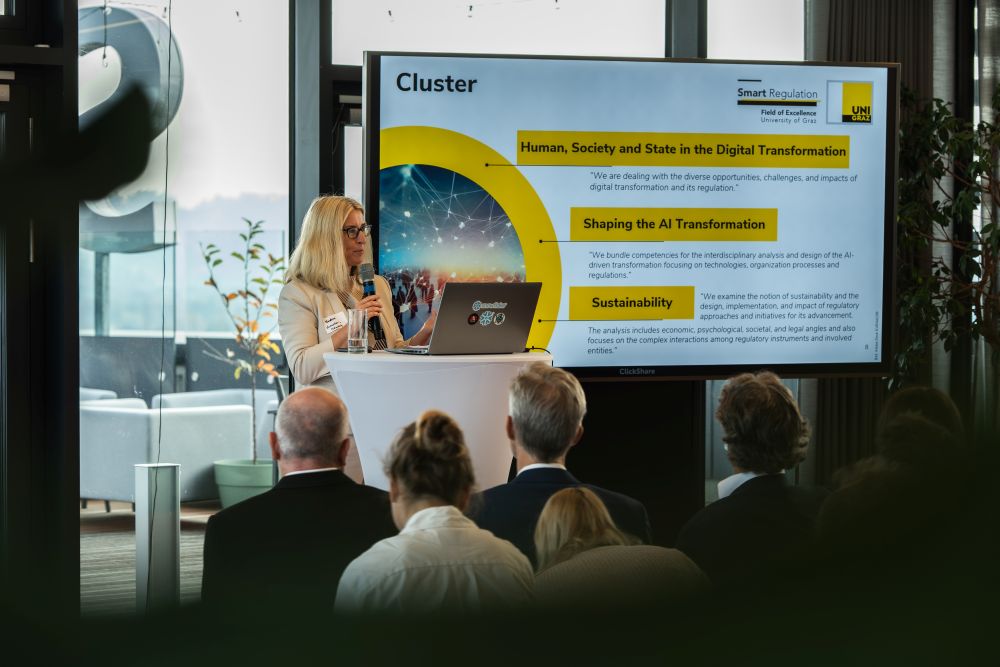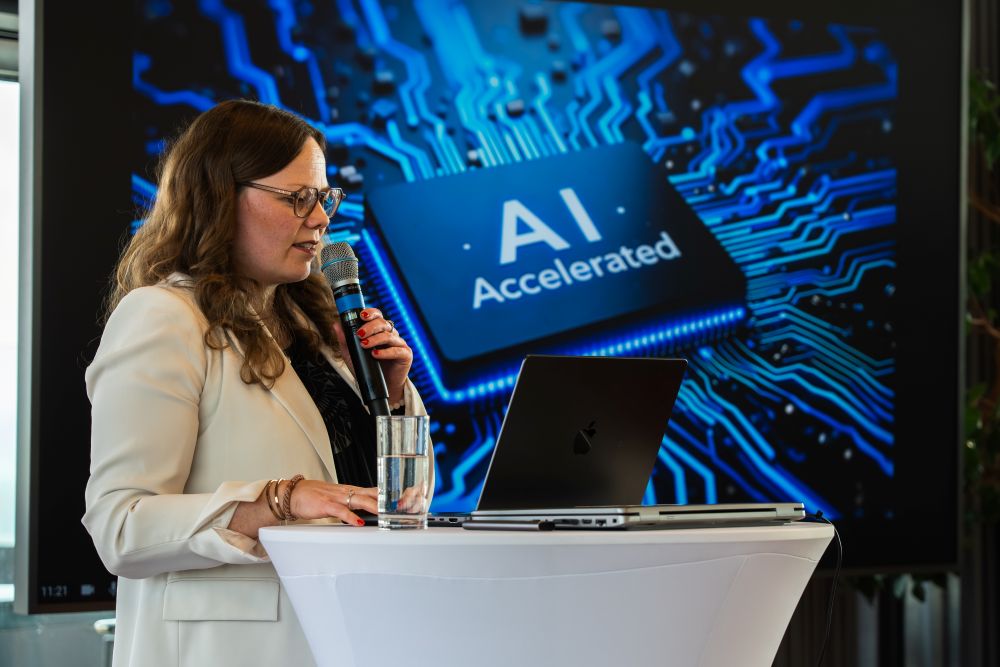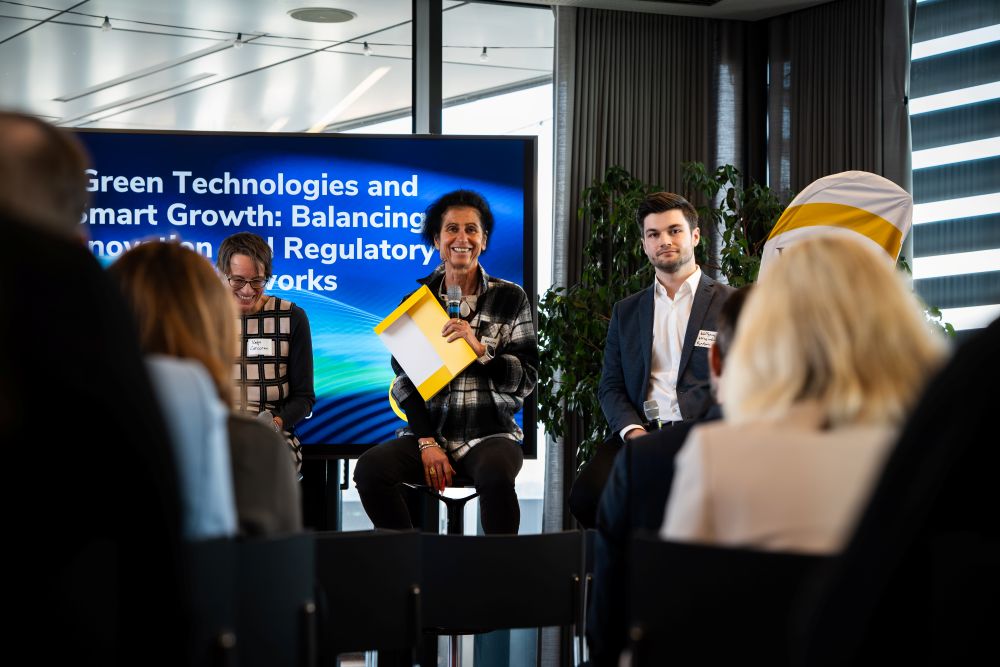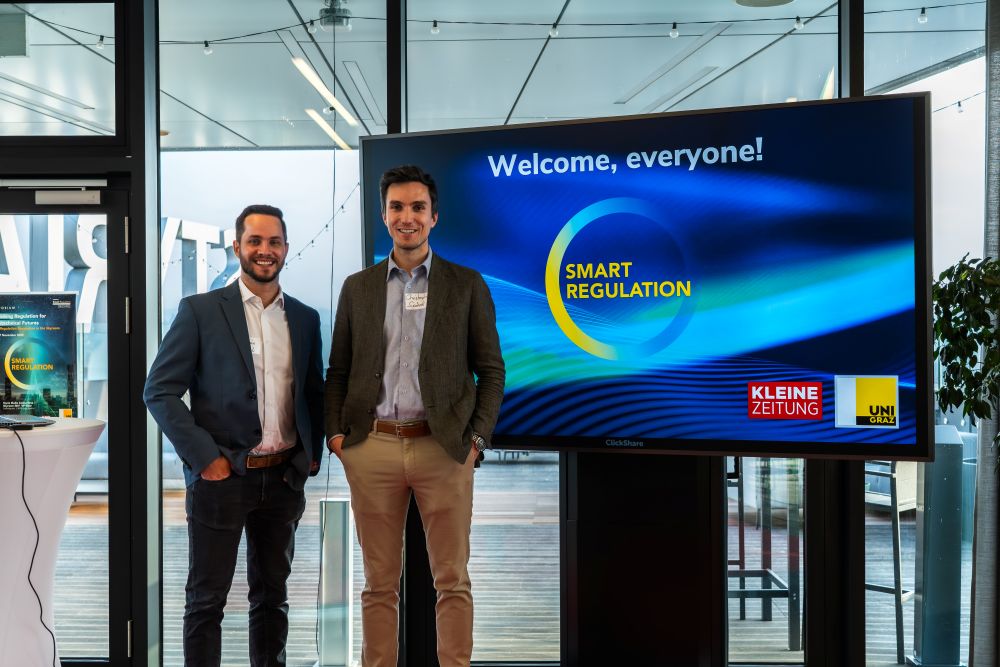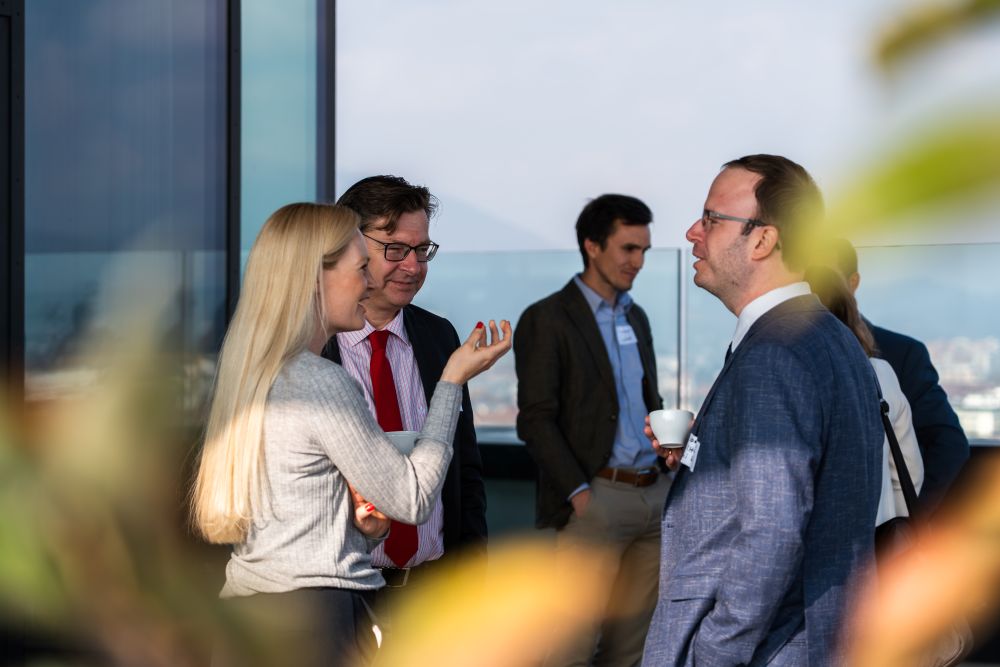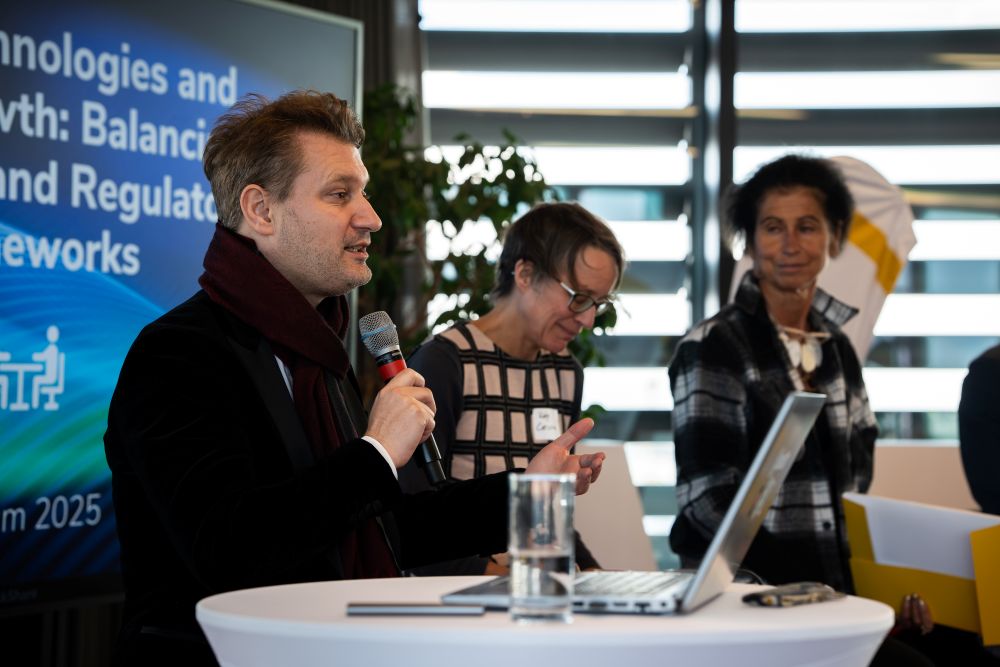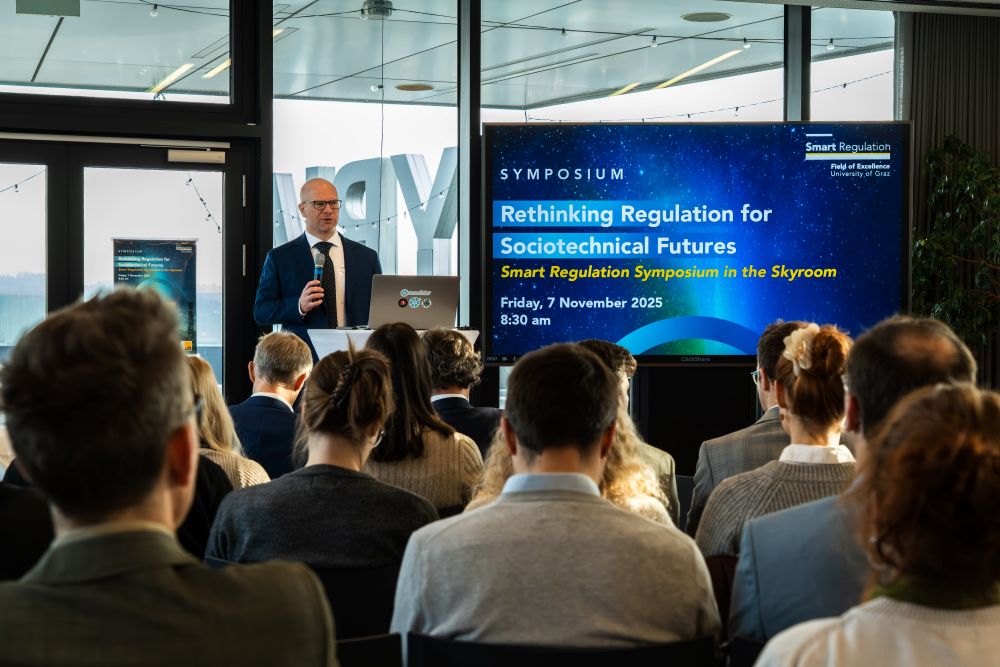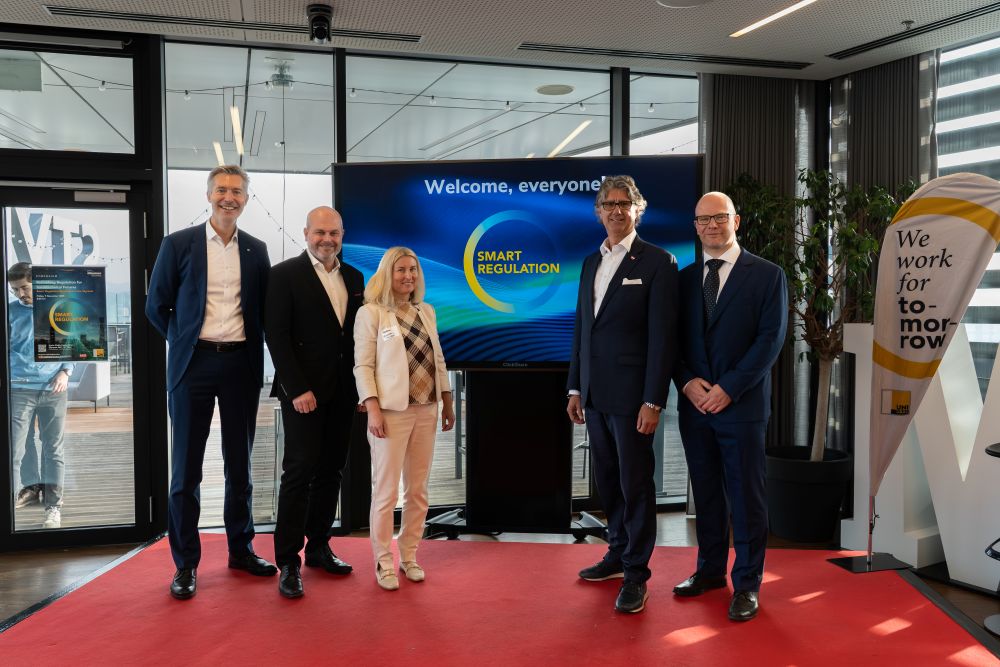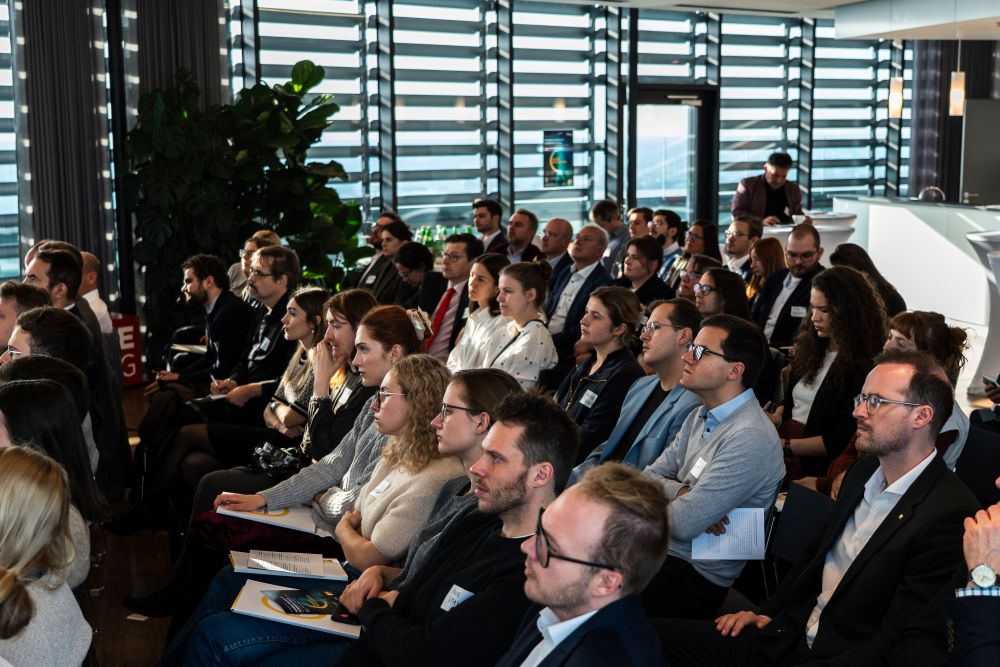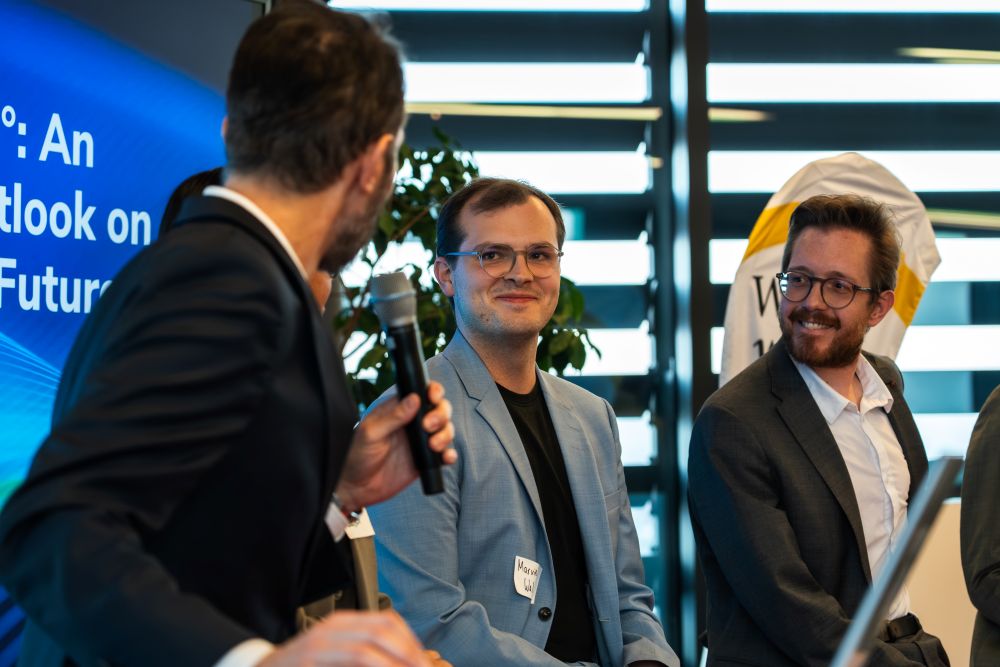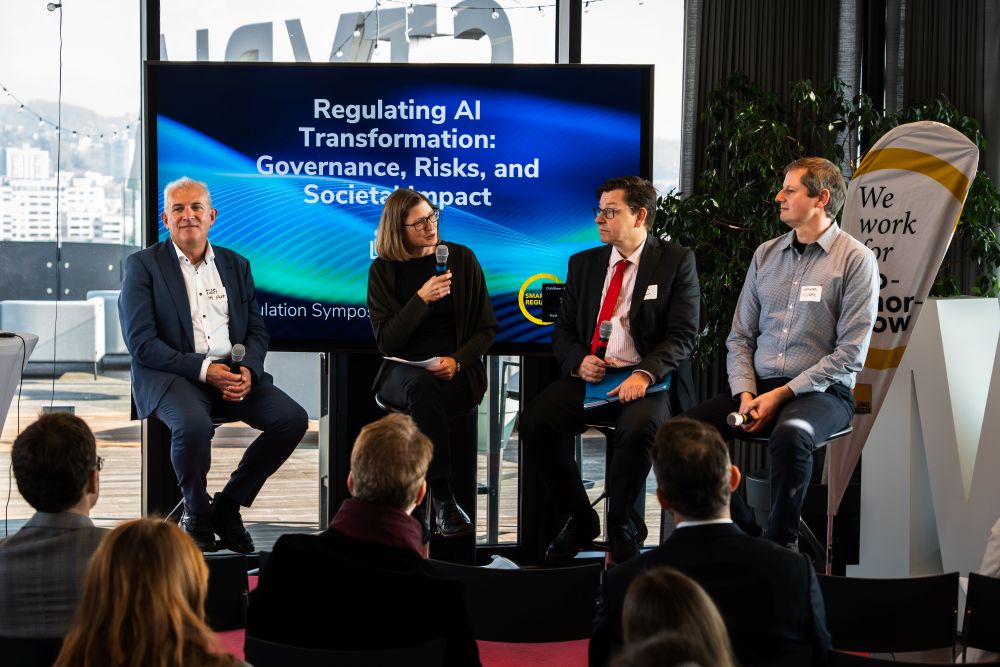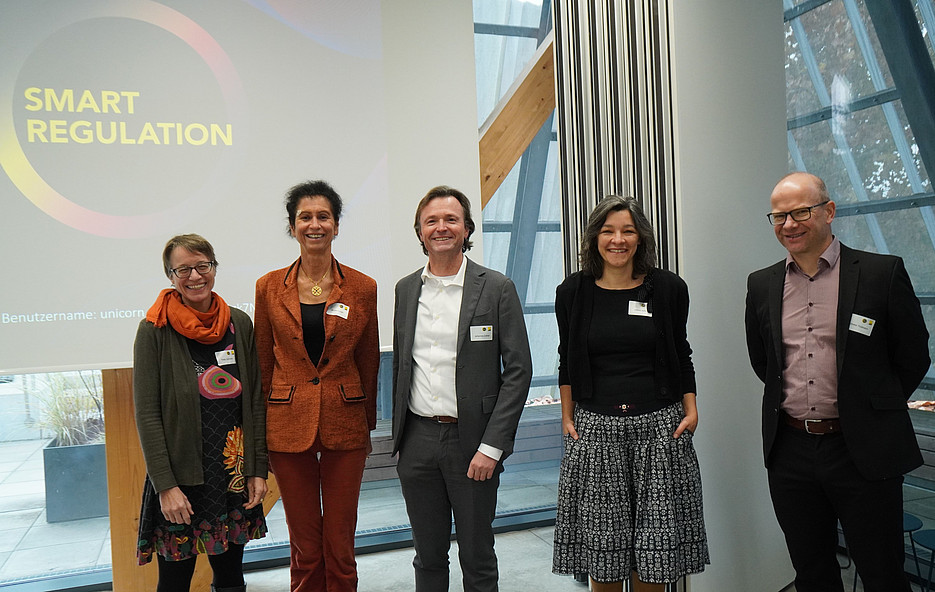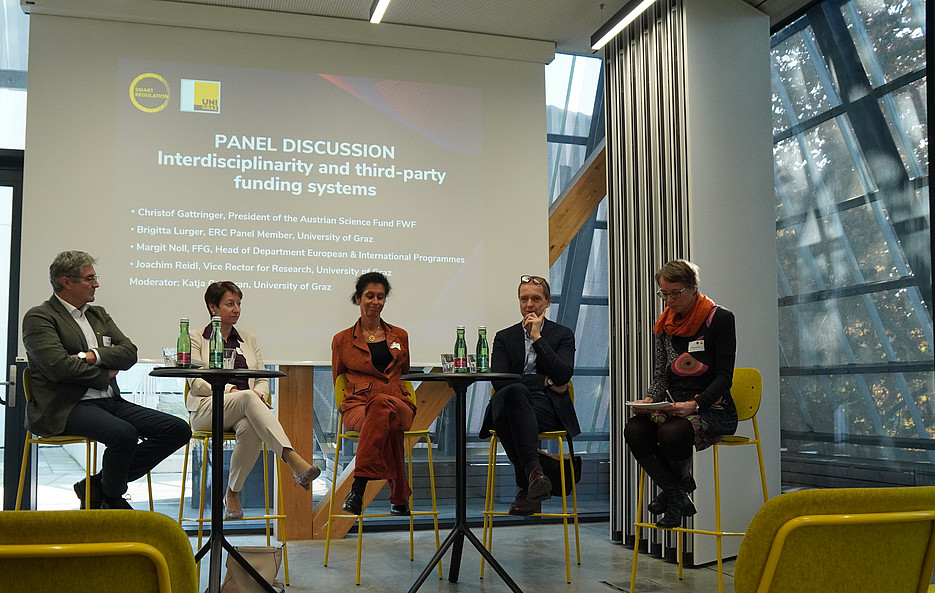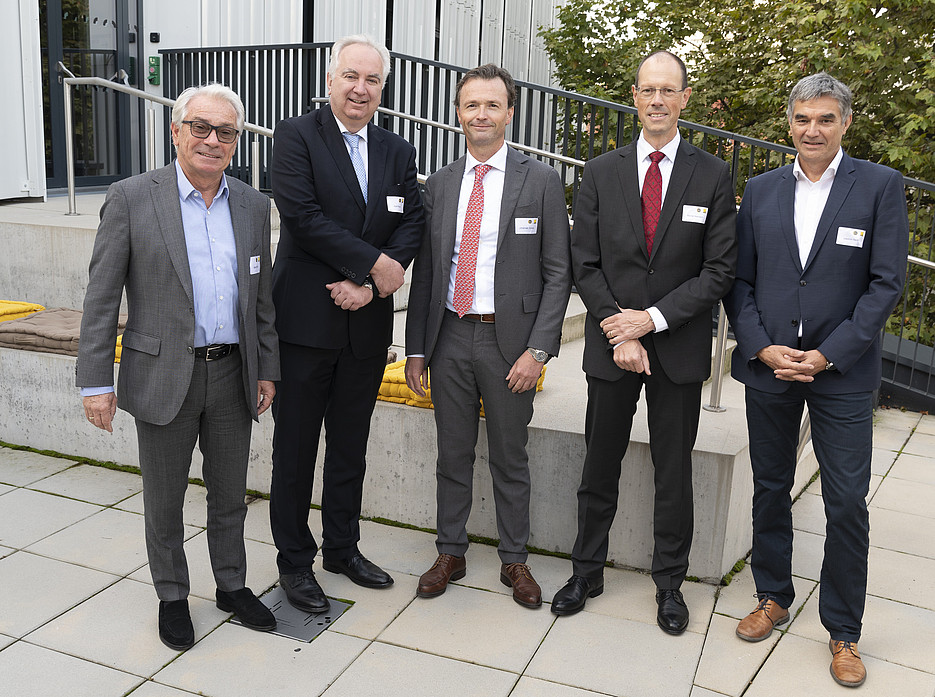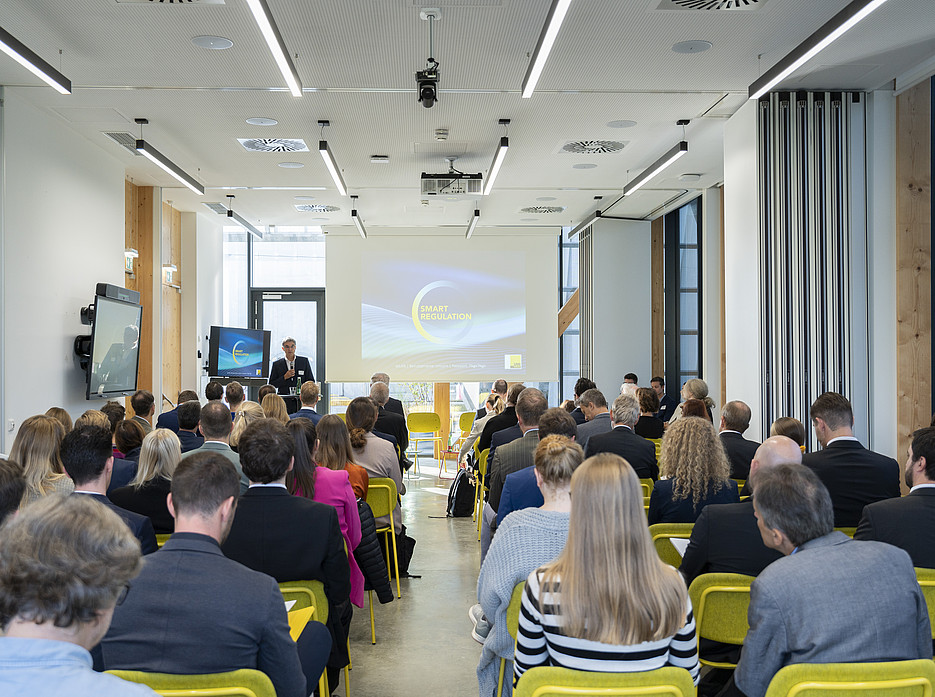Rethinking Regulation for Sociotechnical Futures
Overlooking the rooftops of Graz, the Smart Regulation Symposium 2025 brings together experts from academia, business and civil society to explore the future of regulation in times of technological, environmental and social change. Under the title "Rethinking Regulation for Sociotechnical Futures", the symposium focuses on the role of regulation to respond to and shape social transformation.
A key theme is the relationship between regulatory practice, regulatory frameworks and anticipations about sociotechnical futures: How can smart regulation contribute to sustainable and inclusive futures? How can it reflect shared values while maintaining flexibility and relevance in a rapidly changing world?
The symposium offers space for critical discussion, interdisciplinary exchange, and the development of approaches that view regulation as a strategic tool and practice for creating long-term, value-driven impact.
Special Keynote: Austria's AI Strategy - A Governmental Perspective
Speaker: Mag. Wolfgang Ebner, Chief Digital Officer of the Republic of Austria, Federal Chancellery (BKA)
Contact
| Center for Data Science in Business and Society (BANDAS) https://smart-regulation.uni-graz.at/en/research-group-sm-ai-r/ |
| +43 316 380 - 3188 Institut für Mathematik und Wissenschaftliches Rechnen https://ethik.uni-graz.at/de/ueber-das-institut/christoph-spoeck/ |
Past symposia
Marie-Pierre Granger, Simon Rippon (Central European University):
- Thinking together about justice (Horizon 2020 Project ETHOS)
Stefan Thalmann (University of Graz):
- AI for All? Investigating the impact of Auto Machine Learning tools from six disciplinary perspectives.
Juliane Jarke (University of Graz):
- Researching futures-in-the-making: Between sociotechnical imaginaries and regimes of anticipation.
Nikolaus Forgó (University of Vienna):
- Can academic legal expertise contribute to the success of European research network projects and what does this mean for (basic) legal research? An interim assessment after 50 projects.
Katja Corcoran (University of Graz):
- What is energy citizenship? How interdisciplinary discourse enabled clarifying this concept and its impact for the energy transition (Horizon 2020 Project Energy Citizenship and Energy Communities).
Jana Lasser (University of Graz):
- From qualitative research to machine learning - leveraging an interdisciplinary collaboration to assess the effectiveness of counter speech interventions against hate speech.
PODIUMSDISKUSSION - Interdisciplinarity and third-party funding systems
- Christof Gattringer, President of the Austrian Science Fund FWF
- Brigitta Lurger, ERC Panel Member, University of Graz
- Margit Noll, Austrian Research Promotion Agency FFG, Head of Department European and International Programmes
- Joachim Reidl, Vice Rector for Research, University of Graz
Moderation: Katja Corcoran, University of Graz
The Smart Regulation Symposium 2023 dealt with current regulatory topics on sustainability in times of crisis. Climate change requires smart regulation of the energy sector, which has become even more urgent as a result of the war in Ukraine. War and the pandemic have disrupted global supply chains, highlighting the importance of sustainability and resilience in the logistics sector. The state has provided extensive aid to households and companies, the sustainability of which is unclear. Reporting obligations can make an important contribution to regulation in this context if they are designed smartly. However, the effects of sustainability reporting on the behavior of companies are still unclear.
>> Download Conference program
>> Download Conference program 2021
>> Download Conference program 2020
Conference Volumes
Edited by Rainer Niemann, Matthias Wendland and Johannes Zollner
>> Details on the print edition, eBook and Open Access can be found here.
Edited by Matthias Wendland, Iris Eisenberger and Rainer Niemann (Verlag Mohr Siebeck).
>> Details on print edition, eBook and open access can be found here.
Edited by Patrick C. Leyens, Iris Eisenberger and Rainer Niemann (Verlag Mohr Siebeck).
>> Details on print edition, eBook and Open Access can be found here.
